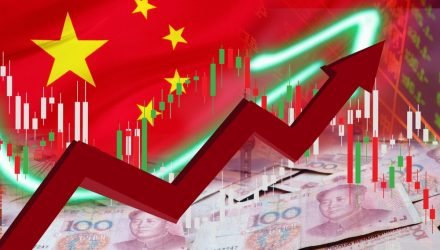
Major Investment Banks Predict Slower Growth for China in 2024
Several major international investment banks, including Goldman Sachs and Morgan Stanley, anticipate a deceleration in China’s economic growth in 2024 compared to 2023, according to their annual forecasts. The average prediction among these firms points to a 4.6% increase in real GDP for 2024, down from the 5.2% expected for the previous year. This follows China’s official target of around 5% growth for 2023, with Premier Li Qiang stating at the World Economic Forum that the Chinese economy grew by approximately 5.2% in the prior year.
Forecasts by Investment Banks:
- Five major investment banks, including JPMorgan, provided forecasts for China’s GDP growth in 2024.
- The average prediction is a 4.6% increase in real GDP, with JPMorgan offering the highest forecast at 4.9% and Morgan Stanley the lowest at 4.2%.
Economic Challenges:
- Analysts highlight managing downside risks in the economy, particularly stemming from the correction in the housing market and associated spillover risks.
- Deflationary pressures are expected to fade in 2024, aided by a rebound in global commodity prices, but low inflation may persist due to insufficient domestic demand.
Impact of Real Estate Market and Pandemic:
- China’s economic growth has slowed from the double-digit rates of previous decades, influenced by pandemic-related restrictions and a recent downturn in the real estate market.
- Despite growth in sectors like tourism and electric cars, the economy did not rebound as quickly as anticipated in 2023.
Policy Measures:
- Goldman Sachs analysts note that Beijing increased the official fiscal deficit in October 2023, deviating from the expected script for the Chinese economy.
- Macro policies are expected to ease notably in 2024, particularly by the central government, to support the economy and prevent a significant deceleration in GDP growth.
IMF Outlook:
- The International Monetary Fund (IMF) raised its 2023 growth forecast to 5.4%, citing China’s policy announcements, but still expects growth to slow to 4.6% in 2024 due to weaknesses in the property market and subdued external demand.
Long-Term Outlook:
- Analysts anticipate a further slowing of China’s economy in the long term, with UBS expecting annual GDP growth to slow to around 3.5% in the years following 2025.
- Growth potential is identified in the movement of workers from rural to urban areas, investment in manufacturing, services, and renewable energy.
Stimulus and Future Growth:
- The willingness of China to stimulate its economy remains uncertain, with Premier Li emphasizing a cautious approach and avoiding massive stimulus.
- Despite potential challenges, China’s growth rate, even at 3-4%, continues to outpace that of developed economies.
China’s economic trajectory in 2024 is marked by forecasts of slower growth, influenced by factors such as the housing market correction and global economic dynamics. Investment banks emphasize the need to manage downside risks and implement policy measures to support economic stability. The long-term outlook acknowledges potential growth areas, but uncertainties remain regarding the extent of stimulus measures and the evolving global economic landscape. China’s ability to navigate these challenges will shape its economic performance in the coming years.

